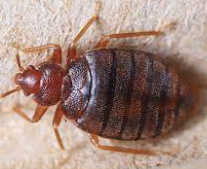If you, as a Philly landlord, are bugged over the city’s new bedbug law, you’re not alone. But the good news is that change may be coming.

Several Philadelphia City Council members recently teamed up with Licenses and Inspections to lead a bed bug Q&A for landlords. The lawmakers heard an earful. In fact, three city council members promised to look into the possibility of re-writing all or part of the new law.
The city’s new bed bug ordinance was signed at the end of 2019 but became law this past January first. It requires landlords to:
- develop a written bed bug control plan,
- give tenants the city’s bed bug brochure prior to a new lease, and
- inform the tenant in writing prior to a new lease if the unit had a bed bug infestation in the previous 120 days, along with steps taken to remediate it.
Should a landlord receive a bed bug complaint from a tenant, the landlord must then:
- acknowledge the complaint in writing within five days,
- bring pest management to the unit within ten days,
- and, if infested, quickly remediate the unit until given the all-clear.
- In buildings with four or more units, all adjacent units must also be investigated, including those above and below.
A tenant’s responsibilities include not knowingly bringing items into a unit infested with bed bugs, notifying the landlord in writing within five days of an infestation, and cooperating with pest management during its investigation and remediation.
According to L&I’s Sarah Adamo, who attended the meeting, the landlord is responsible for the full cost if the infestation is reported within one year of move-in. After a year, the landlord and tenant share the cost.
Many landlords say the new law seems to heavily weigh in favor of the tenant, who may have caused the infestation in the first place.
“Why can’t I pay for a professional exterminator to declare the property bedbug-free prior to occupancy, so that I’m not responsible later?” asked one attendee. Another said she had fully renovated her property, which was built with new materials. “I know for a fact my place is bedbug free. If a tenant brings in bedbugs to my brand new property and I am being held responsible, it’s a very unfair system.” A third asked, “Why shouldn’t landlords be free of responsibility after sixty to ninety days? There’s no fairness in just holding the landlord responsible with fines or a loss of license.”
City Councilman Mark Squilla originally proposed the bill. His Legislative Assistant, Sean McMonagle, attended the meeting, saying “it’s hard to determine the origin of infestation, so we’re trying to split the issue down the middle and trying not to put blame on either party.”
It wasn’t what landlords wanted to hear.
Three council members in attendance, Katherine Gilmore Richardson, Derek Green, and Allan Domb appeared very receptive to revising the ordinance.
“We are committed to following up with our colleagues to bring forth these suggestions to ensure that we adequately represent all of the concerns as an opportunity to explore amendments,” Gilmore Richardson said.
And McMonagle responded, “We are absolutely prepared to work with the other members of council to amend this bill. We could propose an entirely new bill if that’s the best course.”
So there is hope for change. But remember: as of now, the current bedbug ordinance is in full effect.

